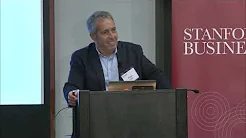The Guardian has this opinion piece, connected to the current debate in England about medically assisted dying, and the slippery slope:
I’m glad the debate on assisted dying is forging ahead. But few understand why it frightens so many by Frances Ryan
"On Thursday, MPs published the findings of a 14-month inquiry into assisted dying. The inquiry – which attracted more than 68,000 responses from the public – made no conclusive statement but instead collected evidence as a “significant and useful resource” for future debates.
That debate is no longer abstract. Legislation is making its way through the parliaments of Scotland, Jersey and the Isle of Man that, if passed, would enable competent adults who are terminally ill to be provided at their request with assistance to end their life.
...
"And yet it also feels a disservice to pretend that any of this is simple or that giving autonomy to some would not potentially harm others. It is deeply telling that among the many voices calling for a new assisted dying law, I have heard no human rights groups, celebrity or politician mention concerns – as advocated by many disability activists – that a law change could lead to disabled people being coerced into euthanasia, or feeling they had no other option.
We only need look to the countries that have legalised assisted dying in recent years to see these fears realised. One study reported the euthanasia of a number of Dutch people who were said simply to have felt unable to live with having a learning disability or autism. Many included being lonely as a key cause of unbearable suffering.
...
"This is not to say that the UK shouldn’t go down the path of legalising assisted dying, but we must at least do so with eyes wide open. The right to die does not exist in a vacuum: it fundamentally alters the doctor-patient relationship, and risks making members of society who are already vulnerable that little bit more insecure. Perhaps that is a price worth paying to end some terminally ill people’s suffering. Perhaps it is too much to ask. There are no black and white boxes to tick labelled “right” and “wrong” – just the messy, painful grey of being human.
In the coming months, politicians will correctly dedicate hours to discussing the right to a good death. Imagine, though, if they were to give equal attention to the right to a good life: from building social housing, exploring a basic income, investing in mental and physical health services, to – as the inquiry recommends – funding universal coverage of palliative care and more specialists in end-of-life pain."
#########
Earlier:
Friday, January 12, 2024









